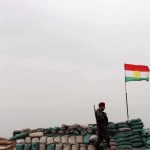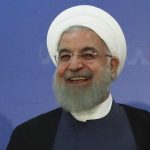By Sanem Deniz
Ninety-four year old Kurdish physician, writer and political observer Tarık Ziya Ekinci has earned his stripes as a commentator on affairs in Turkey. A part of the country’s political scene since 1946, Ekinci has seen it all, from multiple military coups to times when uttering the word “Kurd” could land you in legal hot water.
His experience gives him a unique outlook on Turkey’s political landscape, which has been ruled by Turkish President Recep Tayyip Erdoğan’s Justice and Development Party (AKP) for 17 years, as it prepares to the head to the polls for local elections on March 31.
The upcoming vote gives opposition parties an opportunity to stand against the injustices that have been a key part of the AKP response to the July 2016 failed coup. Still, Ekinci believes the opposition parties are unlikely to give the ruling party a lesson as they have always squandered the opportunities before them.
The upcoming elections are crucial for Turkey’s future, according to Ekinci, as it could highlight the formation of a strong opposition that could deliver the message that Turkish society does not approve the policies of this government
“They are also economically, socially and culturally significant,” he explained, noting that if the opposition comes together in an organised and serious fashion, the AKP will know that its rule will soon come to an end.
But if the opposition fails to respond to government pressures, there will be no point to their election campaigns. They must enlighten the public on political corruption, injustice, and mounting pressure on the country’s media, Ekinci said, which would undermine the ruling AKP.
The veteran Kurdish politician is particularly well versed on the main opposition Republican People’s Party’s (CHP), where he began politics, and the pro-Kurdish Peoples’ Democratic Party (HDP), two political formations that represent large demographics in the country.
Ekinci cites the CHP’s lack of reaction to the candidacy of former AKP’s prime minister and current parliamentary speaker Binali Yıldırım for mayor of Istanbul as a perfect example of their inadequacy
Government critics say Article 94 of the Turkish Constitution does not allow Yıldırım to stand in the municipal elections while serving as parliamentary. Ekinci asked how the CHP could be an effective opposition when it allows what he said was a clear violation of the constitution.
“If the state has disintegrated and the very foundation of the state, the constitution, is no longer in practice, then there won’t be much of a task left for the opposition,” Ekinci said.
The CHP took a similar route when it supported the lifting of politicians’ parliamentary immunity in May 2016, a move that led to the arrest and imprisonment of HDP lawmakers.
Ekinci also has issues with the HDP. Despite appreciating its staunch stance against the government, he believes the party has marginalised itself as a strictly Kurdish entity, which has worked against it.
The HDP is nevertheless the real opposition party in Turkey, even though other parties are united against the pro-Kurdish formation, he said.
The HDP, however, is unable to function as it is under immense pressure with nine lawmakers – including the former co-chair and presidential candidate Selahattin Demirtaş – and thousands of members behind bars for alleged ties to the outlawed Kurdistan Workers’ Party (PKK), an armed group that has fought a campaign for Kurdish self-rule in Turkey for more than three decades.
The pro-Kurdish party has not nominated candidates in the country’s three largest cities, Istanbul, Ankara and Izmir.
Since the coup attempt, government appointed administrators have been running municipalities in the country’s mainly Kurdish southeast. Yet Ekinci is convinced that despite the challenges it faces, the HDP needs to become more inclusive and exert more effort to break out of its shell as a party for Turkey’s Kurds, who number around 15 million.
“I don’t find it right that the HDP remains a strictly Kurdish party. Turkey’s democrats, socialists and AKP’s opposition should be a part of the HDP,” he said. “Turkey’s intellectuals should join and strengthen the HDP if they wish for democracy in the truest sense to be established in Turkey.”
Source: Ahval News



